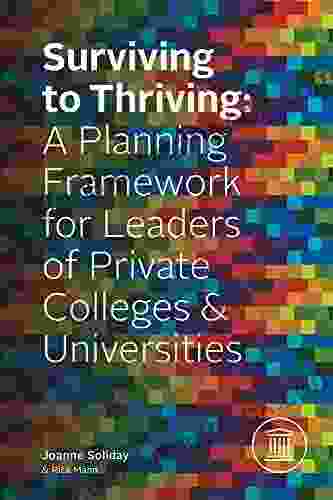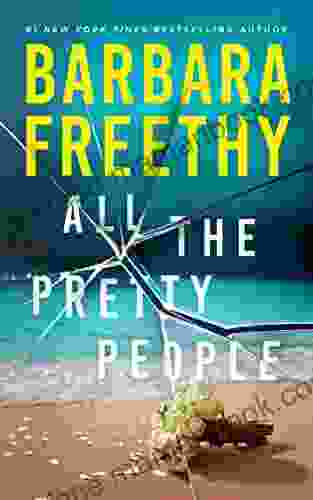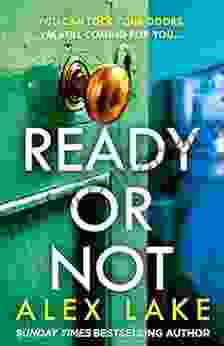A Comprehensive Planning Framework for Leaders of Private Colleges and Universities: Embracing Transformation and Sustainability

In the rapidly evolving higher education landscape, private colleges and universities face unprecedented challenges and opportunities. To navigate these complexities and ensure their long-term success, leaders must adopt a comprehensive planning framework that embraces transformation and sustainability.
4.4 out of 5
| Language | : | English |
| File size | : | 4658 KB |
| Text-to-Speech | : | Enabled |
| Enhanced typesetting | : | Enabled |
| X-Ray | : | Enabled |
| Word Wise | : | Enabled |
| Print length | : | 180 pages |
| Lending | : | Enabled |
| Screen Reader | : | Supported |
This article presents a framework that provides private college and university leaders with a roadmap to develop and implement strategic plans that will guide their institutions towards a thriving future. It emphasizes the importance of strategic planning, stakeholder engagement, data-driven decision-making, innovation, and sustainability as key pillars of effective leadership.
Strategic Planning: A Foundation for Success
Strategic planning is the cornerstone of effective leadership in private higher education. It provides a clear roadmap for the future and aligns the institution's mission, vision, and values with its actions. A well-crafted strategic plan should:
- Define a compelling vision that inspires the entire campus community.
- Identify strategic priorities that will drive the institution towards its vision.
- Establish measurable goals and objectives to track progress and ensure accountability.
- Outline strategies and initiatives to achieve the desired outcomes.
- Provide a framework for resource allocation and decision-making.
Stakeholder Engagement: Building a Collaborative Community
Engaging stakeholders is crucial for the success of any strategic plan. Private colleges and universities must actively involve their faculty, staff, students, alumni, donors, and community partners in the planning process.
Stakeholder engagement helps to:
- Identify diverse perspectives and gain valuable insights.
- Build consensus and support for the strategic plan.
- Foster a sense of ownership and commitment among the campus community.
- Increase the likelihood of successful implementation.
Data-Driven Decision-Making: Informed Leadership
Data plays a critical role in informing decision-making and ensuring that strategic plans are based on sound evidence. Private colleges and universities must invest in data collection, analysis, and visualization to:
- Monitor progress towards strategic goals and objectives.
- Identify areas for improvement and course correction.
- Make data-informed decisions about resource allocation and program development.
- Demonstrate accountability and transparency to stakeholders.
Innovation: Embracing the Future of Higher Education
Innovation is essential for private colleges and universities to remain competitive and relevant in the 21st century. Leaders must foster a culture of innovation that encourages:
- Experimentation with new teaching and learning methods.
- Development of innovative programs and initiatives.
- Collaboration with industry partners to bridge the gap between academia and the workplace.
- Exploration of emerging technologies to enhance the student experience.
Sustainability: Ensuring a Vibrant Future
Sustainability is no longer a choice but a necessity for private colleges and universities. Leaders must prioritize sustainability in all aspects of their operations, including:
- Reducing carbon emissions and promoting energy efficiency.
- Conserving water and other natural resources.
- Promoting waste reduction and recycling.
- Investing in sustainable infrastructure and green initiatives.
- Educating students about environmental stewardship.
Implementation and Evaluation: Ensuring Success
Once a strategic plan is developed, it is essential to ensure that it is effectively implemented and evaluated. This involves:
- Creating an implementation plan with clear roles and responsibilities.
- Monitoring progress regularly and making adjustments as needed.
- Evaluating the impact of the strategic plan on the institution and its stakeholders.
- Using evaluation results to inform future planning efforts.
The planning framework presented in this article provides private college and university leaders with a comprehensive roadmap for navigating the challenges and opportunities of the 21st century. By embracing strategic planning, stakeholder engagement, data-driven decision-making, innovation, and sustainability, leaders can ensure that their institutions remain thriving and relevant well into the future.
Remember, the key to successful planning is not simply creating a document but building a shared vision and commitment among the entire campus community. Through collaborative leadership, private colleges and universities can empower their students, faculty, staff, and stakeholders to create a vibrant and sustainable future for higher education.
Additional Resources
- Strategic Planning in Higher Education by the American Association of Collegiate Registrars and Admissions Officers (AACRAO)
- Strategic Planning by the National Association of Student Personnel Administrators (NASPA)
- Five Essential Elements of a Successful Strategic Plan by the American Council on Education (ACE)
4.4 out of 5
| Language | : | English |
| File size | : | 4658 KB |
| Text-to-Speech | : | Enabled |
| Enhanced typesetting | : | Enabled |
| X-Ray | : | Enabled |
| Word Wise | : | Enabled |
| Print length | : | 180 pages |
| Lending | : | Enabled |
| Screen Reader | : | Supported |
Do you want to contribute by writing guest posts on this blog?
Please contact us and send us a resume of previous articles that you have written.
 Top Book
Top Book Novel
Novel Fiction
Fiction Nonfiction
Nonfiction Literature
Literature Paperback
Paperback Hardcover
Hardcover E-book
E-book Audiobook
Audiobook Bestseller
Bestseller Classic
Classic Mystery
Mystery Thriller
Thriller Romance
Romance Fantasy
Fantasy Science Fiction
Science Fiction Biography
Biography Memoir
Memoir Autobiography
Autobiography Poetry
Poetry Drama
Drama Historical Fiction
Historical Fiction Self-help
Self-help Young Adult
Young Adult Childrens Books
Childrens Books Graphic Novel
Graphic Novel Anthology
Anthology Series
Series Encyclopedia
Encyclopedia Reference
Reference Guidebook
Guidebook Textbook
Textbook Workbook
Workbook Journal
Journal Diary
Diary Manuscript
Manuscript Folio
Folio Pulp Fiction
Pulp Fiction Short Stories
Short Stories Fairy Tales
Fairy Tales Fables
Fables Mythology
Mythology Philosophy
Philosophy Religion
Religion Spirituality
Spirituality Essays
Essays Critique
Critique Commentary
Commentary Glossary
Glossary Bibliography
Bibliography Index
Index Table of Contents
Table of Contents Preface
Preface Introduction
Introduction Foreword
Foreword Afterword
Afterword Appendices
Appendices Annotations
Annotations Footnotes
Footnotes Epilogue
Epilogue Prologue
Prologue Blue Skeleton
Blue Skeleton Chad Robertson
Chad Robertson Wendell Berry
Wendell Berry Lillian Falciglia
Lillian Falciglia Marie Elizibeth Parks
Marie Elizibeth Parks Betty Edwards
Betty Edwards Ellis Avery
Ellis Avery Peter Lewis
Peter Lewis Lucy Tempest
Lucy Tempest David Herbert Donald
David Herbert Donald M R Forbes
M R Forbes Regina G Richards
Regina G Richards Britteney Black Rose Kapri
Britteney Black Rose Kapri Dave Bartell
Dave Bartell A M Snead
A M Snead Flora Madison
Flora Madison Alison Stuart
Alison Stuart Joseph Stone
Joseph Stone Agatha Christie
Agatha Christie Andrew Dobell
Andrew Dobell
Light bulbAdvertise smarter! Our strategic ad space ensures maximum exposure. Reserve your spot today!

 Fernando PessoaThe Lives of Shadows: An Illustrated Novel That Captivates with Its Haunting...
Fernando PessoaThe Lives of Shadows: An Illustrated Novel That Captivates with Its Haunting... Ibrahim BlairFollow ·19.9k
Ibrahim BlairFollow ·19.9k Keith CoxFollow ·11k
Keith CoxFollow ·11k Wayne CarterFollow ·4.2k
Wayne CarterFollow ·4.2k Gabriel BlairFollow ·17.1k
Gabriel BlairFollow ·17.1k Carlos DrummondFollow ·17.4k
Carlos DrummondFollow ·17.4k Ben HayesFollow ·12.2k
Ben HayesFollow ·12.2k Jamal BlairFollow ·16.2k
Jamal BlairFollow ·16.2k Bruce SnyderFollow ·17.9k
Bruce SnyderFollow ·17.9k

 Vincent Mitchell
Vincent MitchellUnveiling the Enchanting Tale of Plant Reproduction: A...
Plants, the silent yet vibrant...

 Sam Carter
Sam CarterDelve into the Enigmatic World of "Relative Murder: A...
In the realm of mystery and suspense, the...
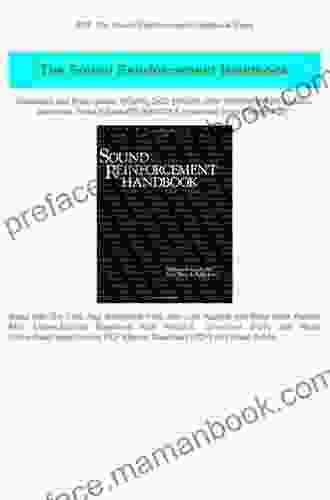
 Richard Simmons
Richard SimmonsThe Sound Reinforcement Handbook: A Comprehensive Guide...
In the realm of live sound engineering, The...

 Leo Tolstoy
Leo TolstoyEnter the New Era of Cyberwar: Unmasking the Kremlin's...
`` Prologue: The Digital...
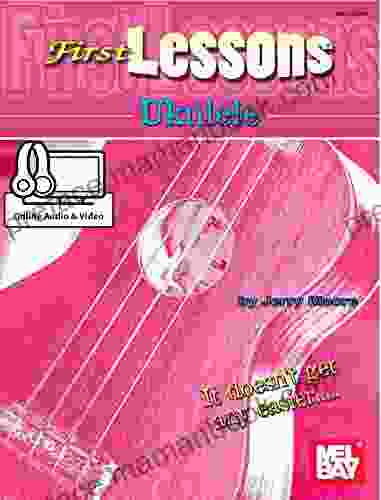
 Brenton Cox
Brenton CoxFirst Lessons Ukulele Bridget Baker: A Comprehensive...
Embarking on a musical journey with the...
4.4 out of 5
| Language | : | English |
| File size | : | 4658 KB |
| Text-to-Speech | : | Enabled |
| Enhanced typesetting | : | Enabled |
| X-Ray | : | Enabled |
| Word Wise | : | Enabled |
| Print length | : | 180 pages |
| Lending | : | Enabled |
| Screen Reader | : | Supported |


